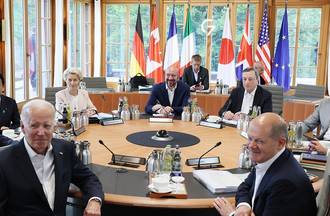Navigating the Indo-Pacific Programme
This programme covers security in the region that is the global centre of gravity for economic growth, technological development, and geopolitical competition: the Indo-Pacific.
Sustaining the ‘Asian Peace’ that has lasted over four decades is now seen as critical to a peaceful 21st century, yet this depends on the ability of local and outside powers to manage power shifts and reconcile their differences without resorting to the use of force. China’s growing economic and military power is driving change in the regional security environment, and it is eliciting a range of responses. Some states defend their sovereign interests by appealing to the legal order or the court of global public opinion, while seeking a route to coexistence through accommodation and compromise. Others do so by means of enhanced deterrence, achieved through military modernisation and by deepening multilateral alliances and other security agreements. Accommodation may invite further challenges, yet a spiral of militarisation accompanied by tests of will is likely to end in disaster. This is Asia’s security dilemma.
Aside from questions related to China, other developments in the region are equally compelling. These include the return of Japan to the front rank of world powers, the geostrategic implications of India’s rise, and the geo-economic implications of continued integration centred on the region, allied to the fact that it remains the source of critical components for emerging and disruptive dual-use technologies.
The Navigating the Indo-Pacific programme aims to understand all of this through analysis, research and the promotion of dialogue to guide the development of policies that can manage a period of regional transformation and the risks inherent in adapting to a new regional as well as global power balance. Priority themes include how China’s influence on the balance of power and military modernisation affect regional stability; the UK’s Indo-Pacific ‘tilt’ including partnerships like AUKUS and GCAP, and the ‘indivisibility’ of Euro-Atlantic and Indo-Pacific security; the implications of India’s geopolitical emergence; and sustaining the resilience of the Asian Peace.
Our experts
Dr Philip Shetler-Jones
Senior Research Fellow, Indo-Pacific Security
International Security
Fellows
Dr Alessandro Arduino
RUSI Associate Fellow, International Security
Andrew Cainey
RUSI Senior Associate Fellow, International Security
Dr Bates Gill
RUSI Senior Associate Fellow, International Security
Dr Jürgen Haacke
RUSI Associate Fellow, International Security
Isabel Hilton OBE
RUSI Senior Associate Fellow, International Security
Professor Christopher Hughes
RUSI Senior Associate Fellow, International Security
Professor William Hurst
RUSI Senior Associate Fellow, International Security
Dr Keizo Kitagawa
RUSI Associate Fellow, International Security
Dr Walter Ladwig
RUSI Associate Fellow, International Security
Clovis Meath Baker CMG OBE
RUSI Associate Fellow, RUSI International
Catherine Nettleton CMG OBE
RUSI Senior Associate Fellow, International Security
Raffaello Pantucci
RUSI Senior Associate Fellow, International Security


















